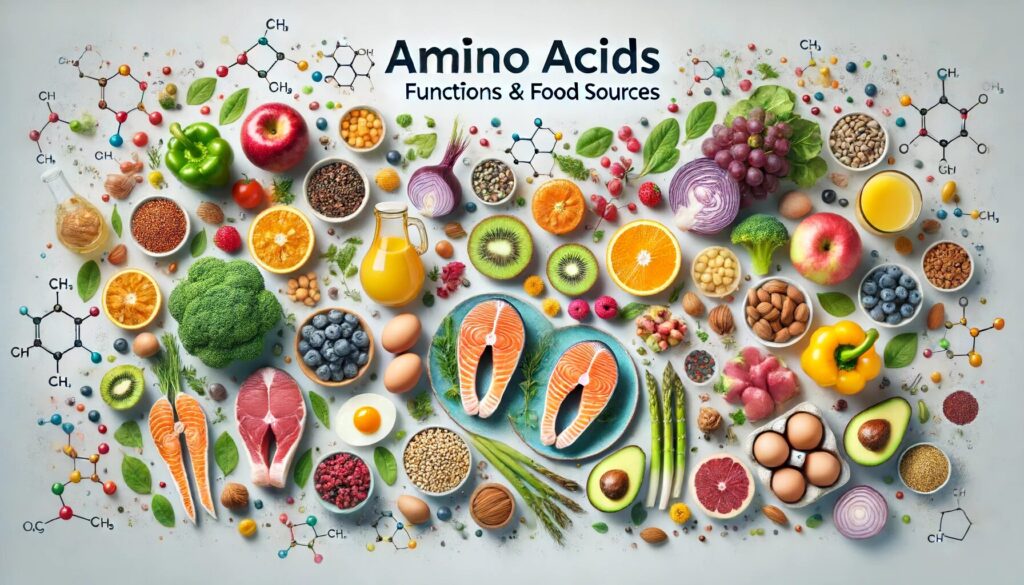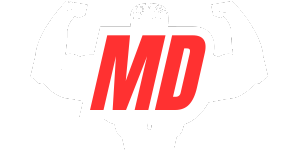Nutrition is the cornerstone of muscle building. While lifting heavy weights is crucial for hypertrophy, the role of diet cannot be underestimated. Muscles grow when they receive the proper fuel, making what you eat just as important as how you train. The “Eat Big, Lift Big” concept underscores the principle that to build substantial muscle mass, you must consume ample, nutrient-dense food supporting your training efforts and recovery.
Understanding the Role of Macronutrients
Protein Sources and Amino Acids
Protein is the foundation of muscle growth. It supplies essential amino acids, which are the building blocks of muscle tissue. During muscle hypertrophy, your body relies on protein to repair and rebuild damaged muscle fibers during intense weightlifting sessions.
High-quality protein sources like chicken, eggs, fish, and plant-based options such as lentils and quinoa provide the necessary amino acids for muscle repair and growth.

Carbohydrates and Glycogen Stores
Carbohydrates are the body’s primary energy source and are important in fueling your workouts. Consuming carbs ensures your glycogen stores are replenished, providing the energy required to maintain high training intensity. Post-workout, carbohydrates help restore glycogen levels, facilitating faster muscle recovery and sustained performance in subsequent sessions.
Fats and Energy Levels
Healthy fats are vital for hormone production, particularly testosterone, crucial for muscle growth. Fats also provide a concentrated energy source, helping maintain optimal energy levels throughout the day.
Balancing your intake of healthy fats, like those from avocados, nuts, seeds, and fatty fish, ensures proper hormone function and supports a lean body composition while providing long-lasting energy.
Optimizing Micronutrients and Supplementation
Vitamins and minerals, though required in smaller amounts than macronutrients, play a huge role in muscle recovery and performance. Magnesium, zinc, vitamin D, and B vitamins support metabolic processes essential for muscle function and repair.
Ensuring you get enough nutrients can prevent deficiencies hindering your muscle-building efforts.
While whole foods should form the bulk of your diet, supplements can provide an additional boost. Protein powders, creatine, and branched-chain amino acids (BCAAs) are popular among bodybuilders for enhancing recovery and supporting muscle growth.
Quality matters when choosing supplements, so prioritize bioavailability to ensure your body absorbs and uses the nutrients effectively.
Caloric Strategies for Muscle Growth
Caloric Surplus and Lean Mass
To build muscle, you need to be in a caloric surplus—meaning you consume more calories than your body burns. This surplus provides the energy required for muscle repair and growth. However, the surplus should be moderate to promote lean mass gain without excessive fat accumulation.
Calculating your daily caloric needs and adding a surplus of 250-500 calories will help facilitate muscle growth while minimizing fat gain.
Nutrient Density and Meal Planning
Nutrient-dense meals provide the vitamins, minerals, and macronutrients your body needs without overloading on empty calories. Meals rich in lean proteins, whole grains, healthy fats, and vegetables support your training and recovery. Thoughtful meal planning, including pre- and post-workout nutrition, ensures you’re fueling your muscles at optimal times for optimal growth.
Nutrient Timing and Eating Frequency
Timing your nutrient intake around workouts is crucial for maximizing muscle gains. Eating protein and carbohydrates before a workout provides energy and prevents muscle breakdown. After training, consuming a meal rich in protein and fast-digesting carbs helps speed recovery by replenishing glycogen stores and initiating protein synthesis to repair muscle fibers.

Spreading your meals evenly throughout the day helps maintain stable energy levels and supports consistent muscle growth.
Frequent meals can also help manage insulin sensitivity and prevent overeating. Eating every 3-4 hours ensures a steady supply of nutrients to your muscles, keeping them in an anabolic state for growth and reducing the risk of muscle breakdown.
Enhancing Muscle Recovery and Anabolic State
Staying hydrated is key to muscle recovery. Water and electrolytes support proper cellular function, aiding nutrient transport and muscle repair. Dehydration can lead to decreased strength and impaired recovery. Drinking enough water throughout the day, especially after intense workouts, is crucial for maintaining an anabolic state, where muscle growth is optimized.
Digestive health plays a major role in how effectively your body absorbs nutrients. A fiber-rich diet of whole grains, fruits, and vegetables promotes gut health and ensures efficient digestion. Good digestion helps maximize nutrient absorption, ensuring your body gets the most out of your food, leading to better muscle growth and overall performance.
Practical Tips for Nutritional Success
Regularly tracking your body composition helps gauge the effectiveness of your nutrition and training program. Measuring body fat percentage, muscle mass, and overall weight gain provides insight into whether your caloric intake supports lean muscle growth or contributes to excess fat gain. Adjusting your diet based on these metrics can fine-tune your results.
Many athletes face challenges like nutritional deficiencies, over-reliance on supplements, or digestive issues. Addressing these by incorporating whole foods rich in antioxidants and focusing on balanced, nutrient-dense meals ensures your body remains primed for muscle growth.
Maintaining digestive health through proper hydration, fiber intake, and avoiding overly processed foods can enhance nutrient absorption and recovery.
Frequently Asked Questions
What does “Eat Big, Lift Big” mean?
“Eat Big, Lift Big” refers to the principle that to build significant muscle mass, you must consume enough calories and nutrients to support heavy lifting and muscle recovery. It emphasizes eating nutrient-dense foods to fuel intense workouts and optimize muscle growth.
Should I take supplements to build muscle?
While supplements can enhance your nutrition, they are not a substitute for whole foods. Protein powders, creatine, and branched-chain amino acids (BCAAs) can support muscle growth and recovery when used in conjunction with a balanced diet.
Can I build muscle while staying lean?
Yes, building muscle while minimizing fat gain is possible by carefully managing your caloric surplus and focusing on nutrient-dense, whole foods. Regular strength training and monitoring your progress can help achieve lean muscle growth.


